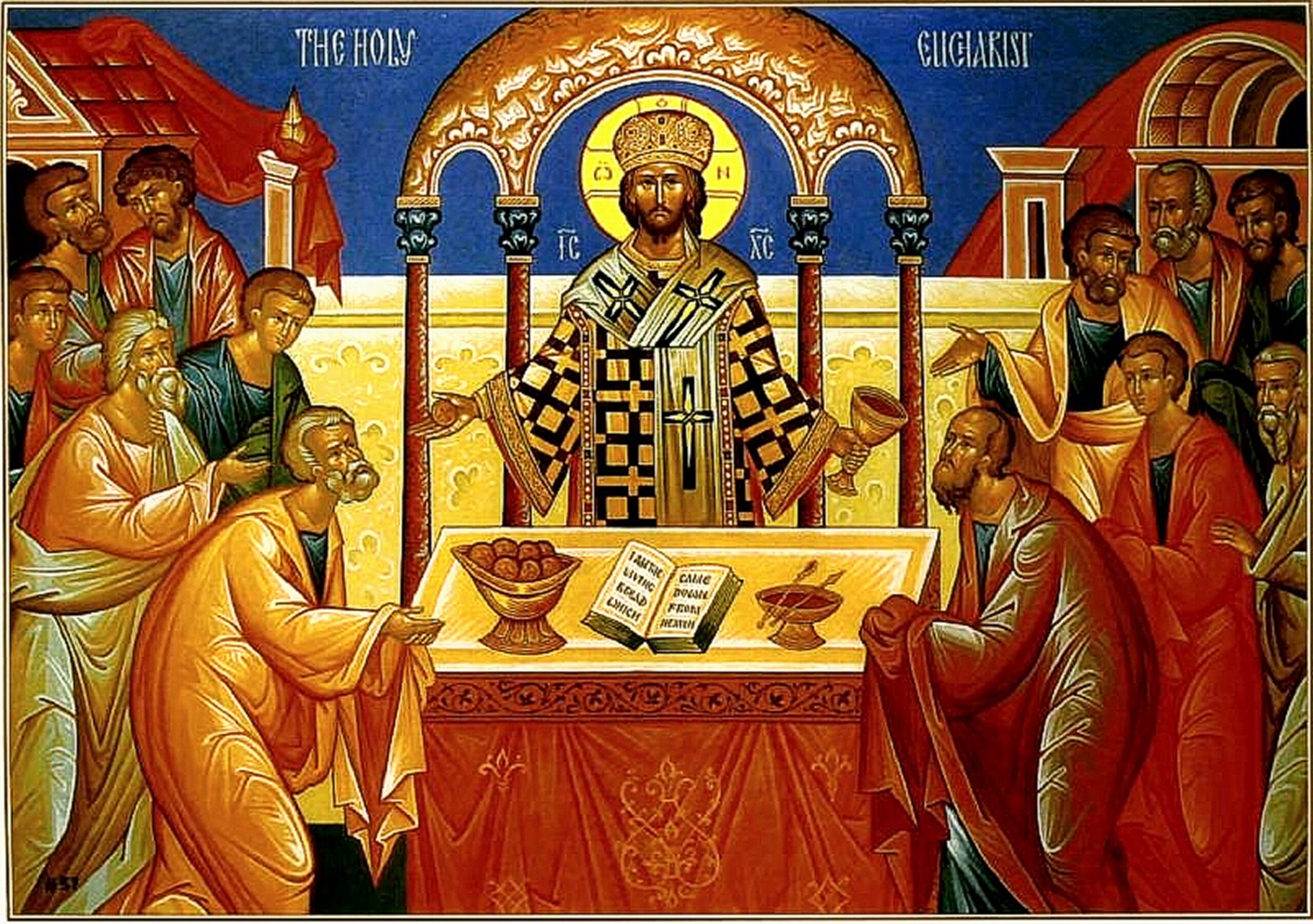Preserve us, Your servants, those who minister, our leaders, the armed forces, and the people present here, in Your holiness.
(Divine Liturgy of St. Basil the Great, p. 46)
—
Unless the Lord builds the house, those who build it labor in vain. Unless the Lord watches over the city, the watchman stays awake in vain.
Psalm 127:1
Set a guard over my mouth, O Lord, keep watch over the door of my lips!
Psalm 141:3
The Lord watches over the sojourners, He upholds the widow and the fatherless; but the way of the wicked He brings to ruin.
Psalm 146:9
The Divine Liturgy is supposed to be an escape from the material and an entrance into the Kingdom of Heaven, revealed in real time in the midst of our earthly lives. This is why the Divine Liturgy, both of St. Basil and St. John Chrysostom, begins with the words “Blessed is the Kingdom of the Father and of the Son and of the Holy Spirit, now and forever, and to the ages of ages.” The emphasis in this opening invitation is the word “Now,” in that the Kingdom is not just a far-off reality, but we enter it each time we celebrate the Divine Liturgy. As we have previously discussed, we receive Holy Communion as a provision, or practice, for eternal life. We receive it in the context of the Divine Liturgy. However, when the Divine Liturgy is over, we exit the experience and return into the world. Yes, Christ is present in the world, and at work in the world, but not in the same way as He is in the Divine Liturgy. For in the world, we have to fight to be Godly in a material world. The Divine Liturgy is set up for that we escape, temporarily, the material world and enter into the realm of the Divine. With the Divine Liturgy now about to end, the attention turns towards our return to the material world.
The Prayer at the Ambon began by summarizing what we have done in the Divine Liturgy and why we have done it. The attention of the prayer now turns towards the people in the world we are about to reenter. The next sentence of the prayer refers to four specific categories of people, which we will reflect on here. It continues to more specific categories as well as behaviors that will be part of the next reflection.
The first classification is those who minister. In Greek, the word is “diakonous.” So, this doesn’t pertain only to ordained clergy, but anyone in any ministry of the church—those who sing, those who teach, anyone involved in spreading the Gospel.
The next group of people prayed for are “our leaders.” This is a pretty broad category—there are lots of different kinds of leaders. This could be leaders in the church, government, leaders of businesses and schools, coaches, anyone who leads.
The Greek word “straton” literally translates as “soldiers” but in most modern translations it is translated “armed forces.” The Divine Liturgy was composed before there was ever a thought to airplanes, tanks and other means of military protection. Armed forces cover every branch of the military, as well as first responders.
The last category covered in this sentence of the prayer is the people present at the Divine Liturgy.
Surrounding these for categories of people we are praying for are the words “preserve us” and “in Your holiness.” To preserve something is to safeguard and help. The prayer offers this as our request, to safeguard and help us “in Your holiness.” In other words, we are not being preserved for fame or fortune or fun. We are asking that God preserve us so that we can grow in and reflect His holiness. And ultimately, so that we can be in His holy heaven.
Each reflection I have ever written contains verses of Scripture. In these reflections, some of the words of the Divine Liturgy are taken directly from Scripture. In other instances where that is not the case, there are Scriptures that are related because of their themes. There are three such verses connected with this reflection.
Psalm 127:1 says “Unless the Lord builds the house, those who build it labor in vain. Unless the Lord watches over the city, the watchman stays awake in vain.” In asking God to preserve us in His holiness, we are acknowledging that if we are doing things and this is not our goal, then why are we doing what we are doing? The goal is to build the house of our lives with the Lord as the foundation. And we are asking for the Lord to preserve us in this pursuit.
In Psalm 141:3, we read “set a guard over my mouth, O Lord, keep watch over the door of my lips!” In asking for the Lord to preserve us in His holiness, we also acknowledge that we play a role in this. We need to safeguard what we say with our mouths. For the mouth can be used to encourage someone or to tear them down. We pray that the Lord will give strength to our minds so that we will have discipline in our mouths.
Finally, Psalm 146:9 reminds us that “The Lord watches over the sojourners, He upholds the widow and the fatherless; but the way of the wicked He brings to ruin.” This verse provides both a comfort and a warning. The Lord will safeguard the pilgrim who is seeking holiness, especially the ones who are really struggling, like widows and orphans. Those who are not seeking holiness, or who are getting in the way of those who are, the Lord will bring those to ruin. We are to work at avoiding sin as well as tempting others to sin, and we are to feel comforted that the Lord will safeguard and preserve those who are seeking to imitate His holiness.
